- Cirque du Soleil’s “Crystal” at Fishers Event Center, a photo preview
- The Gatlin Brothers at Brown Country Music Center
- The Black Keys will perform at Innings Festival, Feb 21.
- Gary Clark Jr. will rock the Innings Festival 2025
- Fall Out Boy to appear at Innings Festival in February
- Kris Kristofferson passes away at 88
Open Letter From a Bar Owner to Musicians
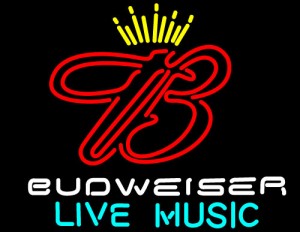 The letter I have copied below was posted on Tampa Craigslist by a bar owner, but it was flagged for removal before I could provide a link or credit the author. But I managed to copy the content. So here it is, and I agree with a lot (although not all) of what he has to say. If more musicians clued into this perspective, the club scene would be much better:
The letter I have copied below was posted on Tampa Craigslist by a bar owner, but it was flagged for removal before I could provide a link or credit the author. But I managed to copy the content. So here it is, and I agree with a lot (although not all) of what he has to say. If more musicians clued into this perspective, the club scene would be much better:
A bar, that is, an establishment that earns its revenue primarily from selling alcoholic beverages, measures its success by the ounce and the accounting is done everyday because we mostly live on the edge. So we spend our time trying to figure out how to sell more ounces. It’s not just how many people are in the house or how great the atmosphere is (that’s certainly important), but how many drinks, preferably premium, we sell in a day. That’s it.
Live music is important to most of us (if we have that kind of venue). But it is a significant expense and is only worthwhile if it produces more than it consumes, just like advertising and anything else we spend money on in order to sell more ounces. But so many of the bands that come through here have no clue what their job is. Your job is to sell booze. You’re not here for any other reason.
There are some truly awful bands that actually chase customers away. But there are also some bands I would call mediocre who do a fantastic job of selling my product. There are also some really good bands who rock the house but not the cash drawer. While I appreciate good music and would never have an interest listening to that mediocre band’s lame CD, they’re coming back next week. Here’s why:
1. They play simple music people recognize. People don’t dance to brilliant guitar solos or heady changes, they dance to the hook lyrics of a simple chorus. (If you’ve ever wondered why pop is popular, that’s why). When the ladies want to dance, the guys show up and everybody drinks. Simple truth.
2. They don’t ask me for drinks, they ask my customers. This is a subtle art and if it’s done well, the band can more than pay for itself. Here’s a few obvious techniques: If someone offers to buy the band a round, you order shots of top-shelf. Even if you don’t drink it, ask for it anyway. If someone asks for a request, try to make a deal with them. If you buy (your date, your table, the band) a round, we’ll play your song. Some bands beg for tips, and that’s fine, but it’s not what I’m paying you for. (Try to play request anyway. At least you wont chase them off.) We had one front man hold up a mixed drink and make a wonderfully cheesy but impassioned pitch that you simply had to try this because it was, as he put it, “a glass of pure happiness”. It resulted in over a hundred bucks in the drawer in just a few minutes. Those guys are busy.
 3. They may not be the best band in town but they look and act professional. I cringe when I see a supposedly professional band wearing frayed khaki shorts, flip flops, mildly offensive t-shirts and greasy baseball caps (the standard bro uniform). I don’t care if you’re bald, a baseball cap is unacceptable. Live music is a visual form of entertainment. If you dress well, even if it’s hipster, funky, weird or flamboyant, as long as you look like you care about your appearance, and show a little self respect, you’ll go over better with my customers. The good bands also respect their gig and the customers. They show up on time, they don’t make a racket while they setup (hint: keep your drummer quiet especially when the jukebox is on.), they choose their set list carefully, they pace their sets well and stay engaged with the audience (don’t stop playing if the dance floor is full), they don’t get hammered and and they don’t leave a mess. All this adds up to what we call retention. Customers don’t leave. You would be surprised how many customers leave because of the band. And it’s usually not because the band is awful, but because it’s too loud, it’s the wrong repertoire, it’s rude and dismissive, it’s not engaged and basically no fun for anyone else but themselves. And here’s a little tip: Your continued employment is directly dependent on my bartender’s opinion of you. That’s probably true for every single bar you play.
3. They may not be the best band in town but they look and act professional. I cringe when I see a supposedly professional band wearing frayed khaki shorts, flip flops, mildly offensive t-shirts and greasy baseball caps (the standard bro uniform). I don’t care if you’re bald, a baseball cap is unacceptable. Live music is a visual form of entertainment. If you dress well, even if it’s hipster, funky, weird or flamboyant, as long as you look like you care about your appearance, and show a little self respect, you’ll go over better with my customers. The good bands also respect their gig and the customers. They show up on time, they don’t make a racket while they setup (hint: keep your drummer quiet especially when the jukebox is on.), they choose their set list carefully, they pace their sets well and stay engaged with the audience (don’t stop playing if the dance floor is full), they don’t get hammered and and they don’t leave a mess. All this adds up to what we call retention. Customers don’t leave. You would be surprised how many customers leave because of the band. And it’s usually not because the band is awful, but because it’s too loud, it’s the wrong repertoire, it’s rude and dismissive, it’s not engaged and basically no fun for anyone else but themselves. And here’s a little tip: Your continued employment is directly dependent on my bartender’s opinion of you. That’s probably true for every single bar you play.
One last thing. It’s hard to find work. You might be surprised at how much competition you have. I get emails, voicemails, regular mail, fed-ex packages left for me, all with earnestly concocted press kits and demos and I ignore almost all of it. I get walk-ins who, if I’m there, I’ll give a few minutes to. Again, you’d be surprised how many show up in their bro-clothes, tell me how awesome they are, and hand me a business card with a URL to their reverb nation page or YouTube channel. They probably go home and wonder why they don’t get a call, but I’m not going to visit your website or listen to your demo. You’ve got maybe 60 seconds to make your “elevator pitch” and just a few more minutes to make it stick. There is a sales technique I’m seeing that’s impressive, stands out and really works, but out of respect for the bands that figured it out, call it a trade secret.
Bottom line: A bar is a business. My bar is my business, my life, my success or failure. What I do in my business is entirely up to me because the risk is entirely mine. If I have a jam night, an open mic, solos, duos, bands, karaoke, or just a jukebox, that’s up to me and no one else. Whatever helps make the most revenue. I have great respect for working musicians and would rather not hire them at all than to short-change them.
The open mic and jams that seem to get so much criticism here are not about me getting free entertainment, they are about bringing in paying customers and keeping them here. People who play and sing, but not in a professional band, like to get out, get a little stage time, have some fun, bring their friends and I offer them the place to do it. And yes, these nights are pretty good for the bottom line. If having bands was better, I’d have bands every night. It’s just reality, man.
Edit: As if things aren’t difficult enough for both musicians and bar owners, read this update from March 25, 2014… https://www.onstagemagazine.com/bmi-sues-bar-for-cover-band-show-over-1-5m/
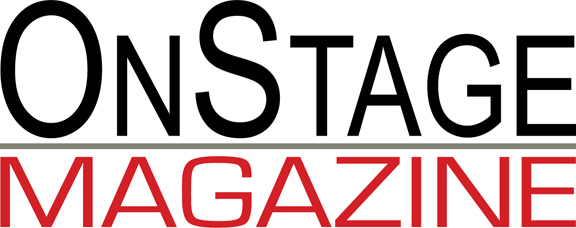

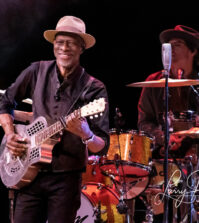

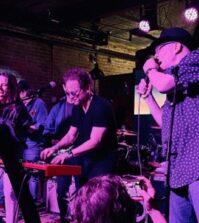


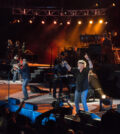



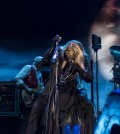





Pingback: Open Letter Example – Ashley Sue: Composing the Self
Pingback: Chris LeDrew: The Nashville Album – OnStage Magazine.com
Pingback: So when is it time to call it quits? - Page 2 - MyLesPaul.com
Pingback: What Bar Owners Think (Austin) – http:// | Austin Texas Music Trade Classifieds
Pingback: BMI Sues Bar For Cover Band Show, seeks $1.5M - OnStage Magazine.com - OnStage Magazine.com
Pingback: Learning To Manage Booking | Inside Music Supplies
Pingback: Open Letter From a Bar Owner to Musicians | LeDrew's Muse